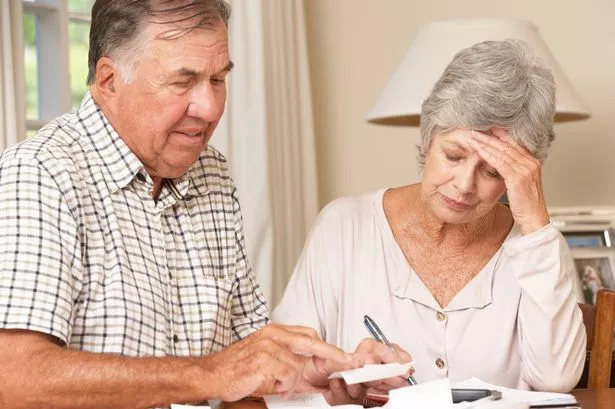HMRC has given an explanation on how a person may end up missing out on their ‘full’ State Pension amount A warning has been issued to pensioners over National Insurance contributions(Image: Getty Images/iStockphoto)
A warning has been issued to pensioners over National Insurance contributions(Image: Getty Images/iStockphoto)
Some older people could miss out on their full State Pension payments, HMRC has warned. This could happen because of a person’s National Insurance record.
If you do not pay National Insurance you may have gaps in your record, HMRC explained via social media channel X, formerly Twitter. A taxpayer said: “I have checked my Government pension and I found out that I have a lower monthly pension.
“It looks like I was paying a lower rate of income tax for six years as self-employed which was between permanent employment. I’m 63 and I have worked all my life, can I get full pension?”
HMRC replied: “You usually need 35 qualifying years of National Insurance contributions to get the full amount. You’d need to check your NI history to view how many qualifying years you have.”
The taxpayer further asked: “I do have over 45 years contributions but six years I worked self-employed but paid less for those two years. Is there any way I can top those six years up?”
HMRC said in response: “You’d need to contact the Future Pension Centre for an adviser to confirm. If they check your record and then confirm it’s worth your while to make a top-up for those years, we can then advise on the next steps.”
You cannot pay voluntary contributions if you do not have gaps in your National Insurance record – unless you’re getting Class 3 credits and are eligible to pay Class 2 contributions, are a married woman or widow paying reduced rate National Insurance or have passed the deadline for paying contributions for the period that has gaps, reports BirminghamLive. Check your National Insurance record to find out if you have any gaps and how much it will cost to pay voluntary contributions.
You can also check if you’ll benefit from paying voluntary contributions or if you can pay online. If you have gaps in your National Insurance record, check if you’re eligible for National Insurance credits before deciding to pay voluntary contributions.
Contact HM Revenue and Customs (HMRC) if you think your National Insurance record is wrong. More details are available on the Government website here.
How much State Pension you get
Your State Pension amount depends on your National Insurance record. Check your State Pension forecast to find out how much you could get when you reach State Pension age. It also shows your National Insurance record.
The full rate of new State Pension is £230.25 a week. Your amount could be different depending on:
if you were contracted out before 2016the number of National Insurance qualifying years you haveif you paid into the Additional State Pension before 2016
If you’re getting less than £230.25 a week, you might need more National Insurance qualifying years to increase your State Pension. If your National Insurance record started before April 2016, you may have been contracted out.
While you were contracted out, you or your employer paid more into your workplace or private pension and less into your State Pension. If you were contracted out, you will usually need more than 35 qualifying years to get the full rate of new State Pension. If your National Insurance record started after April 2016 you will need 35 qualifying years to get the full rate of new State Pension.
Annual payment increases
The new State Pension increases each year by whichever is the highest:
earnings – the average percentage growth in wages (in Great Britain)prices – the percentage growth in prices in the UK measured by the Consumer Prices Index (CPI)2.5%
If you have a protected payment, it increases each year in line with the CPI.
Your National Insurance record
You’ll need 10 qualifying years on your National Insurance record to get any new State Pension. A qualifying year is one in which you were:
working and made National Insurance contributionsgetting National Insurance credits for example if you were unemployed, ill or a parent or carerpaying voluntary National Insurance contributions
You might also qualify if you’ve lived or worked abroad or paid reduced rate National Insurance for married women. More details can be found here.

